Cambodia
Asian elephant population in Cambodia more robust than previously thought
A genetic study of Asian elephants in northern Cambodia published Thursday reveals a larger and more robust population than previously thought, raising hopes the endangered species could slowly recover.
Researchers from the Fauna & Flora conservation group collected samples from elephant dung in Cambodia's northern plains and extracted DNA. From the DNA they were able to identify individual elephants, estimate population size, and determine the sex of the animals and the overall genetic diversity of the population.
From their work they estimated that there are 51 elephants in the Prey Lang, Preah Roka, and Chhaeb Wildlife Sanctuaries, with greater genetic diversity — a “critical factor for long-term viability,” the researchers said — than in two other areas of the country in which they live.
“With sufficient suitable habitat remaining in the region, the population has the potential to grow if properly protected,” the report concludes.
Overall, some 400 to 600 Asian elephants are believed to remain living in the wild in Cambodia. Researchers said the study's findings underscore the potential of the northern area studied to become a “national stronghold” for them, contributing to Cambodia's biodiversity conservation goals.
“Habitat degradation, especially when it leads to fragmentation, continues to be a serious concern,” Pablo Sinovas, director of Fauna & Flora in Cambodia, told The Associated Press.
Massive march storm to bring blizzards, tornadoes, flooding, and fires across US
“This study provides a robust basis on which to base conservation efforts and landscape management.”
The study, supported by USAID funds and Britain's People's Postcode Lottery, was conducted in collaboration with the Cambodian Environment Ministry. The genetic testing was done at the Royal University of Phnom Penh with technical support from the Royal Zoological Society of Scotland.
The research was carried out in the 2020-21 dry season, but Sinovas said since elephants reproduce slowly it is not thought that the population size would have changed significantly since then.
Researchers want to replicate the study elsewhere in Cambodia and in other countries, such as neighboring Vietnam where the Asian elephants live in fragmented populations.
“We were very pleasantly surprised by the results of the project,” said Alex Ball, conservation manager for the Royal Zoological Society of Scotland.
"We now hope to expand this methodology across Cambodia and beyond, helping to build a clearer picture of Asian elephant numbers, which will inform how best we can work to help reverse the decline of these spectacular animals.”
11 months ago
Huge and rare Mekong catfish spotted in Cambodia, raising conservation hopes
The recent capture and release of six Mekong giant catfish in Cambodia has revived hopes for the survival of one of the world's largest and rarest freshwater species.
These critically endangered fish, capable of reaching up to 10 feet (3 meters) in length and weighing as much as 300 kilograms (661 pounds), were caught within five days along the Mekong River and its tributaries.
The species, now limited to the Mekong River in Southeast Asia, once thrived along the entire 4,900-kilometer (3,044-mile) river, stretching from Vietnam to China's Yunnan province.
However, their numbers have declined by 80% in recent decades due to overfishing, dam constructions, and other environmental disruptions.
The first two fish were caught on the Tonle Sap River near Phnom Penh and released after being tagged. Four more were captured on Tuesday, including two over two meters (6.5 feet) long, weighing 120 and 131 kilograms (264 and 288 pounds), respectively.
Japan auctions fin whale meat first time in 50 years
Experts believe the fish were migrating from floodplains near Tonle Sap Lake to spawning areas in northern Cambodia, Laos, or Thailand.
Dr Zeb Hogan, a research biologist from the University of Nevada Reno and leader of the Wonders of the Mekong project, described the discovery as a promising sign.
“It’s a hopeful sign that the species is not in imminent, like in the next few years, risk of extinction, which gives conservation activities time to be implemented and to continue to bend the curve away from decline and toward recovery,” he said.
The Wonders of the Mekong project, in collaboration with Cambodia’s Fisheries Administration, has tagged and released around 100 giant catfish over two decades. This research provides valuable data on their migration patterns, habitats, and overall health.
Local communities play a vital role in conservation, reporting accidental catches to officials for tagging and release. “Their cooperation is essential for our research and conservation efforts,” said Heng Kong, director of Cambodia’s Inland Fisheries Research and Development Institute.
The Mekong River, home to several large species including the giant stingray, is a crucial resource for millions. Conservationists hope this discovery highlights the need to protect its unique ecosystem.
1 year ago
Cambodia Travel Guide: Best Places to See and Amazing Things to Do
Located around the edge of Southeast Asia, Cambodia is a country bestowed with natural beauty and archaeological heritage. This small country has a mix of everything from luscious beaches down south to the ethereal jungle temples in the north. It’s a maze of amazements waiting to be explored. Let's take a look at the 10 most amazing tourist attractions in Cambida.
10 Most Popular Tourist Destinations in Cambodia
The Temple of Angkor Wat
It's difficult to find someone who hasn’t heard of the legendary temple of Angkor Wat. This UNESCO world heritage site was built in the 12th Century by the Khmer Empire. There’s a lot to explore other than the main temple of Angkor Wat. The temple of Bayon and Ta Prohm gets a special mention in this regard.
2 years ago
Cambodian opposition leader gets 27 years on treason charge
A court in Cambodia on Friday found Kem Sokha, leader of the dissolved Cambodia National Rescue Party, guilty of treason and sentenced him to 27 years imprisonment to be served under house arrest.
Judge Koy Sao of the Phnom Penh Municipal Court said Kem Sokha, backed by foreign powers, had used human rights and politics as a guise to organize people to stage a “color revolution” aimed at toppling the legal government. The maximum sentence on the charge is 30 years.
The opposition Cambodia National Rescue Party was dissolved shortly after his 2017 arrest on related charges.
The ruling, four months ahead of a general election, is the latest blow against the opposition, which has faced years of legal harassment from the government of Prime Minister Hun Sen. Kem Sokha, 69, is the country’s most prominent opposition politician not in exile — others having fled abroad to escape what were generally seen as politically inspired prosecutions.
The court said Kem Sokha is barred from all political activity, including voting, and not allowed to meet with outsiders, Cambodian or foreign, except for family members. He may leave the house only with the court's permission.
Also Read: Experts say bird flu threat small despite Cambodian fatality
His lawyer, Ang Udom, told reporters he will file an appeal within one month.
Kem Sokha was head of the Cambodia National Rescue Party when he was arrested in September 2017. The government charged that an old video of him speaking at a seminar about receiving advice from U.S. pro-democracy groups was proof of collusion with a foreign power to illegally take power.
His arrest marked the beginning of a fierce campaign by the government to use the courts — widely considered to be under its influence — to silence its critics in the political and media spheres or drive them out of the country.
Rights organizations decried Friday's court ruling. “The Cambodian justice system has once again shown its jaw-dropping lack of independence by convicting Kem Sokha on baseless, politically motivated charges,” Amnesty International Deputy Regional Director Ming Yu Hah said in an emailed statement. “This verdict is an unmistakable warning to opposition groups months before national elections. The use of the courts to hound opponents of Prime Minister Hun Sen knows no limits.”
The United States Embassy in Cambodia also said it was “deeply troubled” by the conviction. U.S. Ambassador Patrick Murphy, along with representatives of other Western nations, had attended Friday's hearing.
“Denying Kem Sokha and other political figures their freedom of expression and association undermines Cambodia’s constitution, international commitments, and past progress to develop as a pluralist and inclusive society,” said the U.S. statement, emailed to journalists.
Kem Sokha’s trial started in January 2020 but was soon suspended due to the coronavirus outbreak and resumed in 2022.
The popular CNRP was seen as an electoral threat to Hun Sen’s Cambodian People’s Party ahead of the 2018 general election. Kem Sokha’s arrest was swiftly followed by the dissolution of the party by the Supreme Court in November 2017, after the government accused it of plotting its overthrow.
The CNRP had been the only credible opponent of Hun Sen’s party, which consequently swept all the seats in the National Assembly. Rights groups and Western nations charged that the election was neither free nor fair.
Crackdowns continued even after the 2018 polls, as more than 100 former CNRP members and civil society activists were targeted with the charge "incitement to commit a felony” for their nonviolent political activities.
Hun Sen’s 2023 election opponents have come under similar pressure. In October, Son Chhay, a deputy president of the Candlelight Party — the CNRP's de facto successor — was fined the equivalent of $750,000 for remarks he made alleging unfairness and irregularities in the 2022 local elections.
Thach Setha, another of the party’s leaders, was arrested in January for allegedly issuing several bounced checks in 2019.
Hun Sen has been in power for 38 years and has vowed to stay in office until 2028. He has endorsed one of his sons to succeed him. He uses guile and threats to exercise authoritarian power in the framework of electoral democracy.
Kem Sokha was released from prison on bail in September 2018, more than a year after he was arrested, and put under house arrest. In November 2019, he was freed from house arrest but still banned from political activity.
The co-founder of the CNRP, Sam Rainsy, has been in self-imposed exile since 2015, avoiding prison for a defamation conviction along with a slew of other legal charges brought by the government. As in Kem Sokha’s case, the charges are widely seen as politically motivated.
Sam Rainsy was the de facto leader of the party while Kem Sokha was in prison before his release on bail. Tensions grew between supporters of the two opposition leaders because some felt Kem Sokha faced more pressure from Hun Sen’s government while Sam Rainsy was free in exile.
The legal actions against Kem Sokha were widely seen as encouraging a split between the two. Hun Sen is an adroit political operator, and has a record of using divide-and-conquer tactics against his foes.
Kem Sokha’s political career began in 1993 when Cambodia held an election organized by the United Nations after more than two decades of war and unrest, and he was elected to the National Assembly. He established the independent Cambodian Center for Human Rights in 2002.
Rejoining politics in 2005, he founded the Human Rights Party, which finished third in the 2008 general election. In 2012, that party merged with Sam Rainsy’s original Candlelight Party to form the Cambodia National Rescue Party, which captured 55 seats out of 123 at stake in the 2013 election.
2 years ago
Massive fire at Cambodia hotel casino kills at least 19
A massive fire at a Cambodian hotel casino Thursday injured over 60 people and killed at least 19 — a number that officials warned would rise after the search for bodies resumes Friday.
The blaze, which started around midnight Wednesday, was put out over 12 hours later at 2 p.m. Thursday, said Sek Sokhom, head of Banteay Meanchey province’s information department. He said more than 60 people were injured and the death toll was expected to rise once rescuers are able to access victims who were believed to still be under debris or in locked rooms.
Videos posted on social media showed people falling from a roof after they were trapped by the fire at the Grand Diamond City casino and hotel in the town of Poipet.
In a video posted by Cambodia’s firefighting agency, a crowd could be heard shouting pleas to rescue people trapped on the roof of the hotel complex, which is more than a dozen stories tall at its highest point. The video showed at least one person falling as the flames reached the roof.
“Oh, please help rescue them. Pump water, pump water!” shouted onlookers.
The Department of Fire Prevention, Extinguishing and Rescue said it heard calls for help at 4 a.m. emanating from rooms on the 13th, 14th and 15th floors. Hands and even a mobile phone's flashlight were seen waving from windows inside the complex.
“The fire was massive, and was inside the casino, so it was difficult for our water cannons to reach it,” said a firefighter in the video posted online by the fire department.
Read more: Rain, floods in Philippines leave 32 dead, others missing
Many of those inside, both customers and staff, were from neighboring Thailand, which sent firetrucks and emergency workers Thursday to help cope with the crisis in the bustling border town.
An initial investigation found that the fire may have been caused New Year’s holiday decorations drawing too much electricity, causing wires to overheat and burn, Sek Sokhom said. The dead and injured comprised people of several nationalities, including Thai, Chinese, Malaysian, Vietnamese and Cambodian, he said.
A local Buddhist temple was being used to receive their bodies.
The Grand Diamond City casino complex has 500 employees, and had 1,000 customers Wednesday, according to a report from Soth Kimkolmony, a spokesperson for Cambodia’s National Committee for Disaster Management. It was unclear how many were present when the fire broke out.
“Right now, we are trying to bring the dead bodies from the building down. I don’t think there will be any survivors because of very thick smoke. Even we all (the rescue staff) have to wear proper gear when we go inside the building, otherwise we cannot breathe at all,” said Montri Khaosa-ard, a staff member of Thailand Ruamkatanyu Foundation, a social welfare organization that sends volunteers to disaster scenes.
Thai and Cambodian rescue teams worked side by side in Thursday's search of the premises, but paused efforts their searched efforts at the dangerously damaged site as night fell.
Thailand’s public television network, Thai PBS, reported that 50 Thais, both staff and customers, had been trapped inside the casino complex. It cited reports that the emergency ward in Aranyaprathet Hospital on the Thai side of the border was full and some victims had to be sent to other hospitals.
Poipet in western Cambodia is a site of busy cross-border trade and tourism opposite the city of Aranyaprathet in more affluent Thailand.
Read more: Heavy snow in Japan leaves 17 dead, dozens injured
Casinos are illegal in Thailand. Many Thais visit neighboring countries such as Cambodia — a popular tourist destination with convenient international connections — to gamble. Poipet has a cluster of more than a dozen casinos.
The Grand Diamond City casino is just a short walk from the border checkpoint with Thailand and popular with customers who make the four-hour drive from the Thai capital, Bangkok.
3 years ago
FIFA Int'l Friendly: Bangladesh Football team reaches Cambodia
Bangladesh National Football team reached Cambodian capital Phnom Penh Thursday morning to play FIFA Tier 1 International Friendly match against hosts Cambodian national team on September 22.
Midfielder Jamal Bhuiyan is leading the Bangladesh team comprising 23 booters and 10 officials. Former national booter Iqbal Hossain accompanied the squad as the team manager.
After playing the first match in Cambodia, Bangladesh team will fly for Nepal to play another FIFA International Friendly against Nepal national team in Kathmandu on September 27.
Read: FIFA Int'l Friendly: Bangladesh play out goalless draw with Mongolia
It will be the acid test for Spanish Head Coach of Bangladesh national football team Javier Fernandes Cabrera, under whom Bangladesh national side yet to earn any win.
After reaching the Phnom Penh Thursday at 10:30 am local time, Bangladesh community in Cambodia welcome the football team at the airport.
All players and officials of Bangladesh team are in sound health and staying at Phnom Penh Hotel, said a BFF media release on Thursday.
Weather of Cambodia is now cloudy with rain and Bangladesh team has no practice session on Thursday.
Bangladesh team will make their practices on Friday from 4:30 pm to 6:30 pm at the Army Sports ground.
Bangladesh team : Goalkeepers- Anisur Rahman Zico, Mahfuz Hasan Pritom and Ashraful Islam Rana.
Defenders: Yeasin Arafat, Bishwanath Ghosh, Tareq Kazi, Rimon Hossain, Tutul Hossain Badsha, Riyadul Hasan, Rahmat Mia and Isa Faisal.
Midfielders: Sohel Rana, Atikur Rahman Fahad, Masuk Mia Zony, Biplu Ahmed, Rakib Hossain, Jamal Bhuiyan and Hemonta Vincent Biswas.
Forwards: Sumon Reza, Motin Mia, Mohammad Ibrahim, Foysal Ahmed Fahim and Sajjad Hossen.
3 years ago
BFF picks 27 players for FIFA friendlies against Cambodia, Nepal
The Bangladesh Football Federation (BFF) has initially picked 27 players for two FIFA international friendlies against Cambodia and Nepal.
Bangladesh will face hosts Cambodia on September 22 and will play against Nepal on September 27 on their home soil.
Javier Fernandes Cabrera, Spanish head coach of the Bangladesh national football team, announced a 27-member preliminary squad at a press conference in Dhaka Thursday.
Team manager Iqbal Hossain, BFF General Secretary Abu Nayem Shohag and BFF Technical Director Paul Thomas Smalley were also present.
Twelve players taken from BPL champions Bashundhara Kings, four from Saif SC, three each from Dhaka Abahani and Sheikh Russel, two from Sheikh Jamal and one each from Dhaka Mohammedan, Chittagong Abahani and Police FC made it to the squad.
Read: Bangladesh Football Federation (BFF) gets a bus from UEFA as gift
Selected Players
Goalkeepers: Anisur Rahman Zico, Mahfuz Hasan Pritom, Ashraful Islam Rana and Mohammad Naim
Defenders: Yeasin Arafat, Bishwanath Ghosh, Tareq Kazi, Rimon Hossain, Tutul Hossain Badsha, Riyadul Hasan, Rahmat Mia, Rayhan Hasan and Isa Faisal
Midfielders: Sohel Rana, Atikur Rahman Fahad, Masuk Mia Zony, Biplu Ahmed, Mohammad Ibrahim, Rakib Hossain, Jamal Bhuiyan, Hemanta Vincent Biswas, Faisal Ahmed Fahim and Sohel Rana Jr.
Forwards: Sumon Reza, Motin Mia, Sajjad Hossain and Shahrier Emon.
3 years ago
Padma Bridge a symbol of pride for developing world: Hun Sen
Cambodian Prime Minister Hun Sen has congratulated Prime Minister Sheikh Hasina and the people of Bangladesh for successfully implementing the challenging Padma Bridge project with their own resources.He termed the bridge as a symbol of pride for the developing countries like Cambodia.Foreign Minister Dr AK Abdul Momen paid a courtesy call on the Cambodian Prime Minister in Phnom Penh on Friday.They expressed satisfaction at the existing bilateral relations and resolved to further strengthen it in the days ahead.Dr Momen extended an invitation to the Cambodian Prime Minister for a visit to Bangladesh next year on the occasion of the 30th anniversary of diplomatic relations between the countries.Momen sought the Cambodian leader’s support as the current Chair of ASEAN for expediting the repatriation of the stranded Rohingyas from Bangladesh to their homeland in Myanmar.He also requested Cambodian support in favour of Bangladesh candidacy for Sectoral Dialogue Partnership.The Cambodian leader conveyed his best regards and greetings to Prime Minister Sheikh Hasina whom he described as a respected elder sister.Momen and Hun Sen exchanged views on the challenges emanating from the pandemic and the ongoing conflict between Ukraine and Russia.
Both the leaders voiced concerns at the escalating food and energy insecurity affecting people, particularly in the developing world.
They stressed the importance of dialogue and peaceful settlement of issues for maintenance of peace and stability in the world.
Bangladesh-Cambodia bilateral talks were held at the Ministry of Foreign Affairs and International Cooperation in Phnom Penh.
Foreign Minister Momen and Cambodian Deputy Prime Minister and Foreign Minister Prak Sokhonn led the respective delegations.
The two Foreign Ministers reviewed the important aspects of the bilateral relations between the two countries.
The two Foreign Ministers reiterated their keenness for further strengthening the existing bilateral relations by adding further substances to it.The two sides discussed, inter alia, the areas of cooperation in trade, commerce, investment, agriculture, pharmaceuticals, food security, manpower, ICT, tourism, cultural exchange etc.Both the sides agreed to make efforts for enhancing the bilateral trade, which is currently much below the potentials, they observed.
They also emphasized on concluding the diverse MoUs under process at the earliest.
3 years ago
After slow starts, some Asian vaccination rates now soaring
When Cambodia rolled out COVID-19 vaccines, lines stretched down entire streets and people left their shoes out to save their places as they sheltered from the sun. But three months into its campaign, just 11% of the population had received at least one dose. In far wealthier Japan, it took two weeks longer to reach that level.
Now both countries boast vaccination rates that rank among the world's best. They are two of several nations in the Asia-Pacific region that got slow starts to their immunization campaigns but have since zoomed past the United States and many nations in Europe.
The countries with high rates include both richer and poorer ones, some with larger populations and some with smaller. But all have experience with infectious diseases, like SARS, and strong vaccine-procurement programs, many of which knew to spread their risk by ordering from multiple manufacturers.
Also read: US mandates vaccines or tests for big companies by Jan. 4
Most started vaccinating relatively late due to complacency amid low infection rates, initial supply issues and other factors. But by the time they did, soaring death tolls in the United States, Britain and India helped persuade even the skeptical to embrace the efforts.
“I did worry, but at the moment we are living under the threat of COVID-19. There is no option but to be vaccinated,” said Rath Sreymom, who rushed to get her daughter, 5-year-old Nuth Nyra, a shot once Cambodia opened its program to her age group this month.
Cambodia was one of the earlier countries in the region to start its vaccination program with a Feb. 10 launch — still two months after the United States and Britain began theirs. As elsewhere in the region, the rollout was slow, and by early May, as the delta variant started to spread rapidly, only 11% of its 16 million people had gotten at least their first shot, according to Our World in Data. That's about half the rate reached in the United States during the same timeframe and a third of the U.K.’s.
Today Cambodia is 78% fully vaccinated — compared to 58% in the U.S. It is now offering booster shots and looking at extending its program to 3- and 4-year-olds.
From the beginning, it has seen strong demand for the vaccine, with the rollout to the general public in April coinciding with a massive surge of cases in India, from which grim images emerged of pyres of bodies outside overwhelmed crematoria.
Also read: Indonesia first to greenlight Novavax COVID-19 vaccine
Prime Minister Hun Sen leveraged his close ties with Beijing to procure nearly 37 million doses from China, some of which were donated. He declared last week that Cambodia's “victory of vaccination” could not have happened without them. The country also received large donations from the U.S., Japan, Britain and from the international COVAX program.
Still, it took time to get sufficient supplies, and many countries in the region that started their programs later struggled even more, especially when the region’s major producer, India, suspended vaccine exports during its spring surge.
“Certainly getting the supply in place was really important for the countries that have done particularly well,” said John Fleming, the Asia-Pacific head of health for the Red Cross. “Then there’s the demand creation side — clearly this is about getting a buy-in from the population and also reaching out to marginalized groups.”
Early in the pandemic, many Asian countries imposed strict lockdown and travel rules that kept the virus largely at bay. As vaccines rolled out in force elsewhere, those low rates sometimes worked against them, giving some people the impression that getting the shot wasn't urgent.
But when the virulent delta variant began ripping through the region, cases rose, encouraging people to sign up.
Some countries, like Malaysia, made extra efforts to ensure that even the hardest-to-reach groups were offered the vaccine. It enlisted the Red Cross’s help to give shots to people living in the country illegally and other groups that may have feared showing up for a government-sponsored vaccination.
“We made the vaccine accessible to all, with no questions asked,” said Professor Sazaly Abu Bakar, director of the Tropical Infectious Diseases and Research Education Center.
As with Cambodia and Japan, Malaysia plodded along in its first three months, giving less than 5% of its 33 million people their first dose in that time, according to Our World in Data.
When cases surged, however, Malaysia bought more doses and established hundreds of vaccination centers, including mega hubs capable of providing up to 10,000 shots a day. The country now has 76% of its population fully vaccinated.
To date, about a dozen countries in the Asia-Pacific region have vaccinated more than 70% of their populations or are on the cusp of doing so, including Australia, China, Japan and Bhutan. In Singapore, 92% are fully vaccinated.
Some countries in Asia, however, have continued to struggle. India celebrated giving its billionth COVID-19 vaccine dose in October, but with a population of nearly 1.4 billion, that translates to a fully vaccinated rate of 29%. Indonesia started earlier than most but has also stumbled, largely due to the challenge of expanding its campaign across the thousands of islands that make up its archipelago.
Japan's vaccine program was notoriously slow — inching along while the world wondered if it would be able to hold the Summer Olympics. It didn't start until mid-February because it required additional clinical testing on Japanese people before using the vaccines — a move that was widely criticized as unnecessary. It was also initially hit with supply issues.
But then it turned a corner. Then-Prime Minister Yoshihide Suga brought in military medial staff to operate mass inoculation centers in Tokyo and Osaka and bent laws to allow dentists, paramedics and lab technicians to give shots alongside doctors and nurses.
The number of daily doses given rose to about 1.5 million in July, and the country is now at about 76% fully inoculated. A large part of Japan's success is due to the public's response, said Makoto Shimoaraiso, a senior official in charge of the country's COVID-19 response.
Many in Japan are skeptical in general about vaccines, but after seeing deaths soar around the world, it has not been an issue.
In fact, retiree Kiyoshi Goto is already clamoring for his next shot, as he looks warily at rising case in Europe.
“I want to get a booster shot as our antibody levels are going down,” the 75-year-old said.
In Phnom Penh, Nuth Nyra was just happy to get her first, saying she was afraid of COVID-19 before — but no more.
“I felt a little bit of pain when I got the shot,” the young girl said in a soft voice at a vaccination center on the outskirts of Cambodia's capital. “But I didn’t cry.”
4 years ago
‘World’s loneliest elephant’ arrives safely in Cambodia
The pachyderm dubbed the “ world’s loneliest elephant ” after languishing alone for years in a Pakistani zoo was greeted on his arrival in Cambodia on Monday by chanting Buddhist monks and was then sent on his way to a wildlife sanctuary.
5 years ago


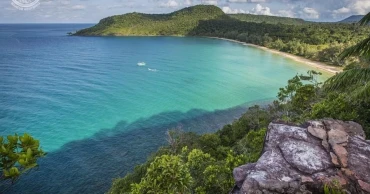
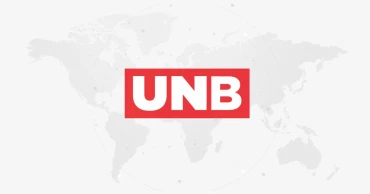
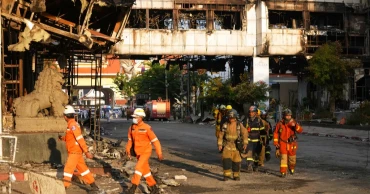
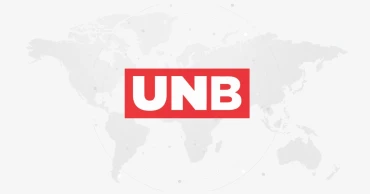
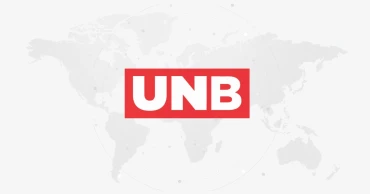
.jpg)








